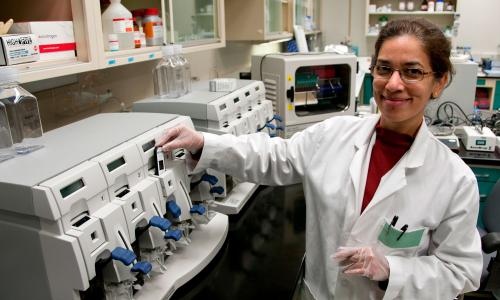Table of Contents
We’re working at the federal and state level to make sure robust, independent science informs decisions to build a healthier, safer, and more just society.
Every day, government officials draw upon science and evidence to make decisions with the potential to improve our health and well-being. Scientific research in the 1970s exposing the toxic effects of lead on children resulted in policies that phased out its use in paint and gasoline. Infectious disease research spurred effective vaccination programs that have protected millions of people from life-threatening illnesses. And, as technologies have advanced, smart government policies have pushed companies to build safer, cleaner, and more energy-efficient household appliances, automobiles, and other consumer products.
But government science is highly vulnerable to political interference. When evidence has supported policies that threaten powerful interests, science has too often been manipulated, suppressed, or pushed aside. The Center for Science and Democracy works to expose and prevent such abuses, pressing for a governmental science infrastructure that is strong and independent so it can better serve the public interest.
Calling out political interference
The Center for Science and Democracy at the Union of Concerned Scientists continues to be a leading voice in documenting—and fighting back against—attacks on governmental science. For more than two decades, we’ve closely tracked hundreds of incidents—in both Republican and Democratic administrations—where our government has manipulated or censored scientific evidence or pushed science to the sidelines.
Pressing for scientific integrity
For more than two decades, we’ve been in the forefront of efforts calling for “scientific integrity” in the federal government—systems and structures to help ensure that robust, independent science is used to inform decisions free from political interference. Thanks in part to our efforts, the Biden administration released a landmark scientific integrity framework that closely follows our recommendations for strengthening scientific integrity provisions.
Today, we’re pressing Congress to codify these provisions into law for all federal agencies. And we’re working to introduce similar provisions at the state level. Our report, published jointly with the Brennan Center for Justice at New York University School of Law, found most US currently lack the policies and laws needed to adequately safeguard science-based decisionmaking from manipulation and politicization.
Tracking the health of science in decisionmaking
We go to the source for information about the health of science-based decisionmaking at the federal level. For more than a decade, the Center for Science and Democracy has regularly conducted respected and informative surveys of scientists at federal agencies to get their firsthand assessment of the strength of scientific integrity policies and the extent to which they can conduct their work without political interference.
For over a decade, we’ve been conducting regular surveys of scientists at federal agencies with science-focused missions, gathering data and firsthand reports about scientific integrity abuses, adherence to agency policies, morale, and other topics.






